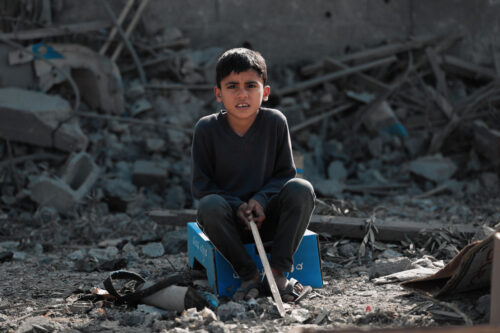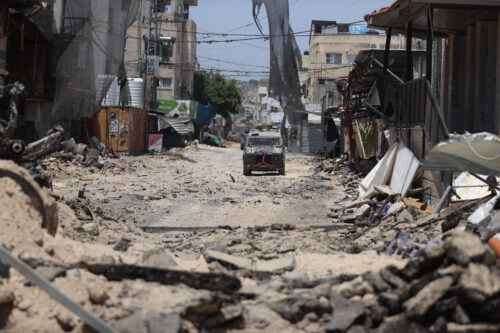Access to water is a human right
This Sunday is World Water Day, a day to remember that access to sanitation and clean drinking water is a human right that many Palestinians are denied.
In 1967, the year Israel occupied the West Bank, East Jerusalem and the Gaza Strip,water resources were brought exclusively under Israeli control. Under international law and as the occupying power, Israel holds the primary responsibility for the welfare of the Palestinians.
However since 1967, Palestinians have been denied access to their rightful share of water and have been severely restricted in their ability to develop their water resources.[fusion_builder_container hundred_percent=”yes” overflow=”visible”][fusion_builder_row][fusion_builder_column type=”1_1″ background_position=”left top” background_color=”” border_size=”” border_color=”” border_style=”solid” spacing=”yes” background_image=”” background_repeat=”no-repeat” padding=”” margin_top=”0px” margin_bottom=”0px” class=”” id=”” animation_type=”” animation_speed=”0.3″ animation_direction=”left” hide_on_mobile=”no” center_content=”no” min_height=”none”][1]

In Gaza

- The blockade on Gaza prevents the entry of materials and energy needed for the day-to-day functioning of the water and wastewater networks, and furthermore obstructs much needed development of these systems.[1]
- The water supplies in Gaza contain contaminants including high levels of nitrates which pose serious health risks to babies and children[2].

- Because of lack of treatment capacity and electricity,around 90,000 cubic meters of sewage are released into the Mediterranean Sea ona daily basis. Raw sewage is present on the streets and flooding causes furtherproblems on the ground for people in already squalid refugee camps.[3]
- The harsh reality imposed by the blockade has beenmade worse by repeated Israeli attacks. During Operation Protective Edge last
summer, the Israeli army intentionally targeted and destroyed wells, pipes,
wastewater facilities, water reservoirs and the main power station.
In the West Bank
- Palestinians have no control over water resources and
access to water is prevented due to restrictions on movement and the
destruction of infrastructure.

- Families are forced to drink highly contaminated water
or buy clean water supplied at an extortionate price by private tankers or the
Israeli Water Company Mekorot, which extracts water from the Mountain aquifer and
sells it back to the Palestinians, increasing Palestinian dependency on Israeli
water supplies.

- In some rural communities (such as the Bedouins living
in the Jordan Valley) Palestinians survive on barely 20 litres per day, the
minimum amount recommended for domestic use in emergency situations. In contrast, Israeli settlers who
live in the West Bank – in violation of international law – have swimming
pools, well-watered lawns and large irrigated farms.
- Drilling
new wells required a permit obtainable only through a lengthy and complicated bureaucratic
process. The
vast majority of applications made for permission to drill new wells are
denied. Demolitions of Palestinian wells occur almost daily under the
pretext of building without a permit.
In the refugee camps in Lebanon and Jordan

- In the refugee camps, the poor
infrastructure and general condition of the camps has meant that clean water is
rare and people must rely on expensive bottled water.
- Informal refugee camps, or ‘gatherings’ often have no
water infrastructure and this means families can’t access the adequate amounts
of water needed and are susceptible to ill health, poor hygiene and poor
sanitation.
- The recent influx of Syrian refugees has put additional
pressure on the camps’ existing water supply sources and networks, sewerage and
drainage systems, as well as operations related to the camps’ solid waste
management.
Other useful resources on the water situation in the occupied
Palestinian territories:
- Not
enough water in the West Bank? (infographic by Visualizing Palestine) - Water and sanitation in
the West Bank (infographic by Thirsting for Justice) - Interactive West Bank
map - Thirsting for Justice
[1]
http://www.lifesource.ps/english/water-in-palestine/
[2]
World Bank Report, April 2009
[3]
http://www.btselem.org/gaza_strip/20140209_gaza_water_crisis
[/fusion_builder_column][/fusion_builder_row][/fusion_builder_container]
Calculate your Zakat
Confused about how to calculate your Zakat? Try our simple-to-use calculator





